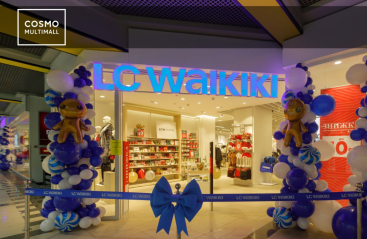Not only retail chains suffered heavy losses because of the quarantine. Food and electronics stores, drogerie-retailers, and petrol stations also record a drop in sales.
Coronavirus pandemic has become a global challenge for all humanity. The world community is entering a new crisis following the rapid spread of the pandemic and severe quarantine. Ukrainian tourism, retailers, and development have already felt the impact of all this stuff.
Hundreds of thousands of stores and public nutrition services suspended their operations once the tight restrictions were announced. Most of their employers were on unpaid leave, and the lessors lost their income. Even those retailers that continued to operate during the quarantine, experienced serious losses.
We cooperate with the largest retailers in the country, covering all Ukrainian regions and the segments of commerce. In recent weeks, our analysts have collected data from retail chains related to the dynamics of their sales during the quarantine. Unfortunately, the results of the research have been disappointing. The largest supermarket chains note that their turnover reduced during the quarantine despite high demand in the first days after the introduction of restrictions.
Even the most successful market players find that their sales in hryvnia terms are equal to the last-years volumes at best. Adjusted for inflation, it means a drop in sales in physical terms.
Some stores located in malls or far from residential areas face the turnover decline in the range from 15% to 70%. Shops located in the bus/railway stations and other once-vibrant places have squatted significantly. The local shops in the residential areas also observe losses. Despite some growth of average check, their number of transactions has fallen by more than one third.
Discounters feature a better situation since they sell goods below market prices. Their sales, in particular stationery, started increasing once the quarantine was announced. However, positive dynamics have been observed until March. Then the restricted access to the stores has caused falling sales and now, a negative trend continues to deepen.
Negative dynamics of sales is not surprising: consumers procured goods in advance, and the population started saving money under the total or partial loss of income.
Actually, many people suffered losses since the markets, malls, sports, jewelry, clothing, and footwear shops stopped operating. Many companies cannot provide their employers with 100% of salaries during the downtime. Electronics, households, and drogerie stores, as well as petrol stations, continue to operate but they still have lost an essential part of goods turnover.
The largest supermarket chains note that their turnover reduced during the quarantine despite high demand in the first days after the introduction of restrictions.
For example, one of the largest chain petrol stations in Ukraine recorded a 30% drop in sales of fuel in March and predicted a 50% fall in April.
According to GfK, electronics chain stores lost averagely 54% of sales on the first day of quarantine.
The drogerie shops in the bedroom communities show the fall of trade volumes by 30%–40%, and the stores around the subway lost over 50% of sales. Household goods and means for personal safety are most in demand while beauty, skin, and hair products, and perfumes have represented the lion's share of turnover. According to the retailers, online sales of makeup and care products, as well as electronics has increased. However, it was not essential but just by 5% and 20%, respectively.
A restaurant business tries to shift to online and catering. However, even the notable growth of the sales won’t make up for the loss of visitors in the stationary facilities.
Even those public nutrition houses that immediately started to sell online lost up to 70% of sales and even more. Online stores were a bit more successful but they also record recession. Moreover, they expect further slowdown shortly.
Almost all working shops except for pharmacies negotiate with lessors about the discounts under falling sales. Retailers with their own premises are in a better situation. However, they don’t exclude business optimization, including the closing of loss-making stores and staff cuts.
The lessors are more willing to give discounts since they understand the challenge of finding another renter for the old rates. In this way, we can say that the renters’ market replaces the lessors’ one and can write its own ticket during negotiations.
The duration of this period can be hardly predicted since much depends on the dynamics of the epidemic, the magnitude of the global crisis, and the pace of economic recovery. In the best-case scenario, the market will gradually recover throughout the year if the quarantine is lifted in May and if Ukraine gets a new tranche from the IMF.



